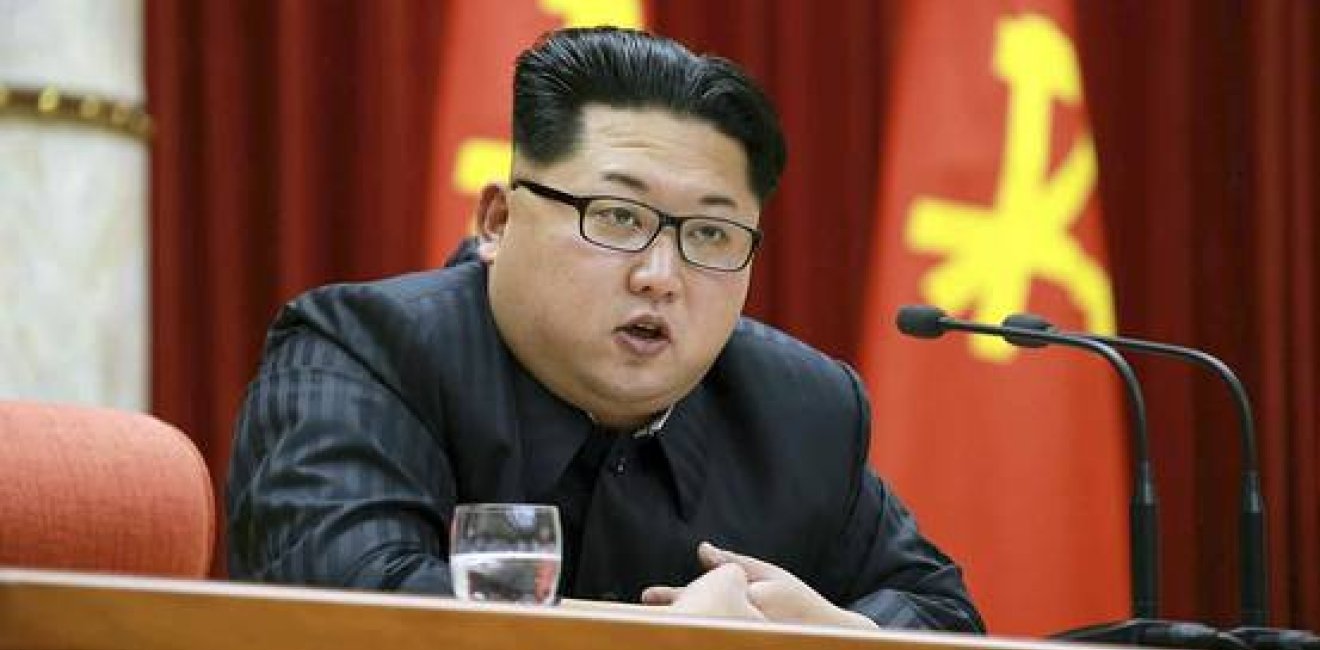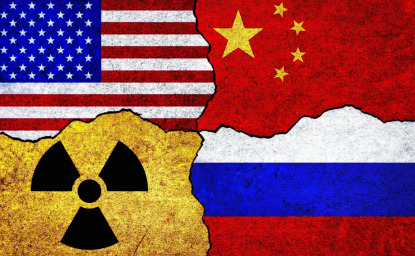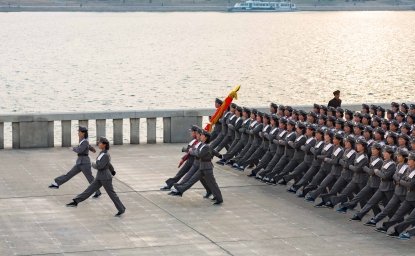The Case for a Two-Track U.S. Approach to North Korea
Robert Daly writes that, whether through sanctions or dialogue, the United States should be prepared to act with and without China.
Robert Daly writes that, whether through sanctions or dialogue, the United States should be prepared to act with and without China.

The U.S.-Iran prisoner exchange, on the heels of Iran’s capture and release of U.S. sailors last week, overshadowed news about North Korea, a country that, at least in the short term, poses a far graver threat to the U.S. The House passed sanctions against North Korea in response to its latest nuclear test, sending a message about U.S. resolve to Pyongyang and to Beijing, our long-standing partner in negotiations.
U.S. thinking about North Korea policy must begin here: China will not take North Korea off life support. Beijing’s commitment to sustaining its ally and Kim Jong Un’s willingness to defer development and let North Koreans suffer mean that no sanctions regime will persuade him to abandon his nuclear program.
Beijing shares Washington’s goal of a denuclearized Korean Peninsula. It worries, however, that sanctions harsh enough to destabilize the Kim regime would send a flood of refugees into northeast China and could bring South Korea’s vibrant democracy and its powerful ally the United States to China’s doorstep.
The Chinese government also has concerns about its own stability. The legitimacy of China’s Communist Party depends on the history and mythology of the founding of the People’s Republic in 1949. In Beijing’s telling, ideological affinity and alliance with Pyongyang allowed Mao Zedong’s upstart nation to defeat the most powerful country on earth in the Korean War. That story has fueled Chinese propaganda for 65 years. Take away the story by abandoning Pyongyang, and Chinese may wonder what the Party is and why it is still in power.
Chinese President Xi Jinping won’t throw Kim Jong Un under the bus, no matter how much contempt he feels for him. The U.S. and its allies should therefore plan a two-track approach: Continue to consult closely with Beijing and act in concert with China whenever possible while also considering actions that Beijing does not approve of but cannot prevent, such as penalizing Chinese and international banks that do business in North Korea and deploying enhanced strategic assets in northeast Asia.
A two-track approach should not surprise Beijing. After the recent nuclear test, a spokeswoman for China’s foreign ministry said that “China is not the cause and crux of the Korean nuclear issue, nor is it the key to resolving the problem.” The Chinese government mouthpiece, People’s Daily, stated that the U.S. has “inescapable responsibilities for the current tension in the peninsula.” The official Global Times said that hostilities between the U.S., South Korea, Japan, “and Pyongyang are actually the source of the nuclear problems.” If China thinks that other nations are the core of the problem, it shouldn’t object if some allied policies don’t depend on Beijing’s good offices to succeed.
Still, China is right in advocating dialogue as well as U.N. censure. At every crisis point over the past 30 years, conflict with Pyongyang could have been better managed if a sustainable relationship or dialogue mechanism had been established 10 years earlier. Whenever a crisis occurs, Washington is determined not to “reward” Pyongyang’s bad behavior by negotiating. It is past time to cut that Gordian Knot. We don’t talk to Pyongyang for Pyongyang’s sake; we do it for ourselves and our allies, in the service of our security.
Whether through sanctions or dialogue, the United States should be prepared to act with and without China. U.S. pursuit of a final settlement of the North Korea issue that is unacceptable to Beijing could prompt China to express its disapproval with force, ultimately destabilizing the peninsula. It’s better for the U.S. and China to arrive at a solution together, though they need not march shoulder to shoulder every step of the way.
The opinions expressed here are solely those of the author.
This article was originally published on WSJ.


The Kissinger Institute works to ensure that China policy serves American long-term interests and is founded in understanding of historical and cultural factors in bilateral relations and in accurate assessment of the aspirations of China’s government and people. Read more


The North Korea International Documentation Project serves as an informational clearinghouse on North Korea for the scholarly and policymaking communities, disseminating documents on the DPRK from its former communist allies that provide valuable insight into the actions and nature of the North Korean state. Read more


The Indo-Pacific Program promotes policy debate and intellectual discussions on US interests in the Asia-Pacific as well as political, economic, security, and social issues relating to the world’s most populous and economically dynamic region. Read more


The Center for Korean History and Public Policy was established in 2015 with the generous support of the Hyundai Motor Company and the Korea Foundation to provide a coherent, long-term platform for improving historical understanding of Korea and informing the public policy debate on the Korean peninsula in the United States and beyond. Read more



